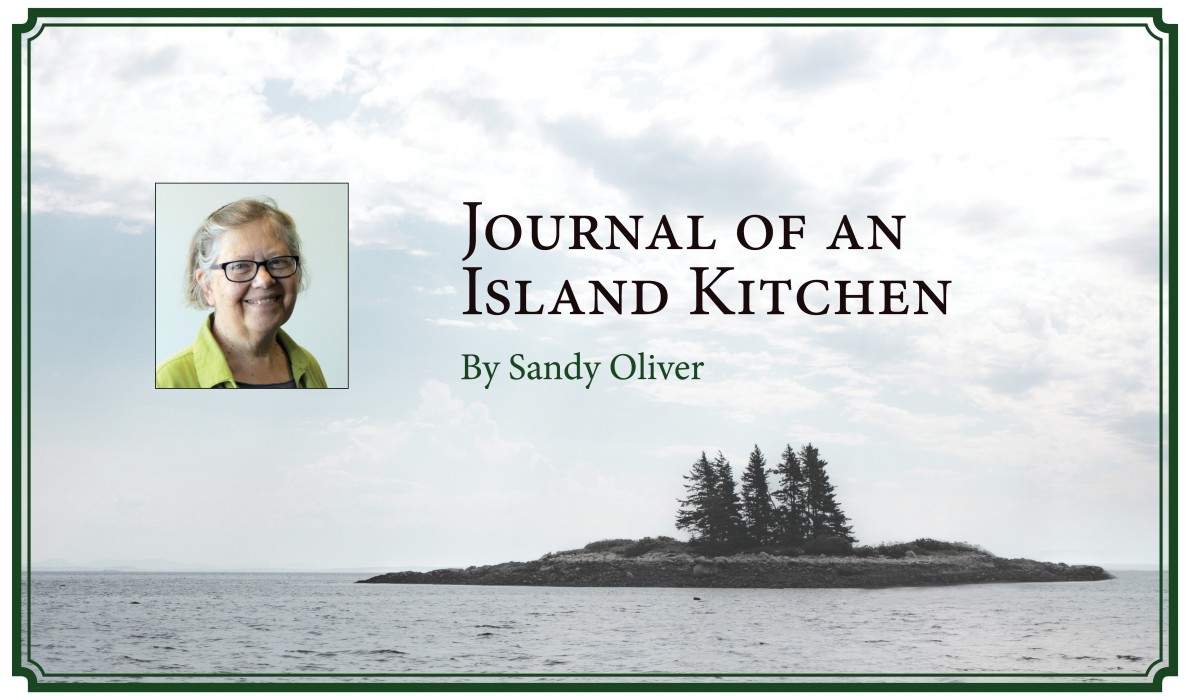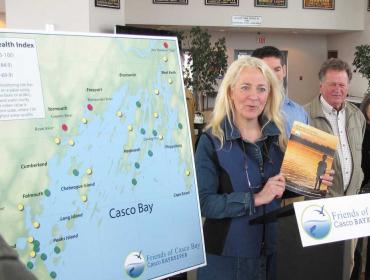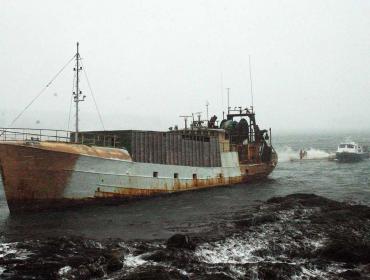Posted April 11, 2019
Last modified April 11, 2019
By Sandy Oliver
If the Maine State Ferry Service’s latest fare schedule lasts long enough, Islesboro might just figure out how to be more food self-sufficient.
“Sustainable” seems to be the word of the year, and sustainable local food is high on the “want” list. But the persistence of food habits is such that we aren’t eating differently, so much as we are shopping differently.
If you have a lot of doctor appointments or commute to the mainland for work, then the quick stop at Hannaford’s on the way is still easy and cost-effective. For the rest of us, at a $1 per minute cost for a car and driver for a round trip to the mainland, not many go off as much as we used to, so picking up bread, milk, fresh vegetables, and meat has shifted to the island stores. Both the Island Market and Durkee’s have very good meat, and Shake and Richard are really good meat cutters. Plus their prices are pretty similar to mainland stores, so the old “cheaper than a ferry ticket” rule obtains.
So what about vegetables? Last summer, the garden at my house ruled the kitchen as usual. Other people on island flocked to the farmer’s market set up in the community center parking lot. Farmer’s markets are fun anywhere. There are lots of vendors and you can find vegetables, meat, cheeses, breads and pies, oils and vinegars, flowers, even musicians. You see your friends there and can indulge in sharp-elbowed competition for strawberries, pies, or eggs, quick before they are sold out. For fun and entertainment, it sure beats dreary box stores, even if prices are higher.
Now, interestingly enough, most of the Islesboro Farmer’s Market vendors come from off-island! And then they went on to create a Community Supported Agriculture (CSA) operation for fall and winter with boxes of vegetables, bread, and meat and all delivered to island households. CSAs often deliver piles of mysterious greens and a plethora of vegetables that a grocery store customer might never choose on her own. So it is that neighbors of mine have learned to cook and love good old chard and other greens, and to deal with carrots, carrots, and more carrots.
Laura, who runs the Blue Water Café at the community center, found that she stocked less and a little less frequently, and acquired fresh food from the farmer’s market. Like many good cooks, she and Josh creatively pull imaginative and delicious combinations from a less varied stock of ingredients.
At my house once the garden died down, I shifted to less fresh meat, and more cooking from keeper vegetables, beans, grains, and I made green salads only for a few days after a mainland trip. That meant more coleslaw, Waldorf salad, cold beet salad, and the like.
I wondered what my fellow Working Waterfront columnist, Courtney Naliboff over on North Haven, was doing with the slight break that the new ferry fare was giving her.
She wrote: “We didn't shop on the mainland frequently anyway, and have been a part of the Fox Islands Food Co-op for a long time. We also do the Turner Farm CSA when it's offered, and I shop some at the island grocery store. When we're going over for a dentist appointment or whatever, we'll stock up, but we haven't ever really done special trips.”
Well, I thought, except for lacking a coop, that doesn’t sound very different from what we all are up to these days.
But here is the interesting thing. Since last summer, I’ve noticed a distinct uptick of interest in farm and market garden creation on Islesboro. After all, if we can make it worthwhile for mainland farmers to trek to the island with lettuce and carrots and all, why the heck not grow them here?
After all, Turner Farm is planted on North Haven soil. Of course, North Haven has better soil than Islesboro, but we have a few acres of good stuff, and quite a while ago, the late great Russell Libby, long time director of Maine Organic Gardeners and Farmers Association, visited here and told me that 15 acres would make Islesboro vegetable self-sufficient. Just a lousy 15 acres.
If it takes another year for the ferry service to readjust fares, that might give us enough time to get our food sustainability act together. Then when we can finally afford to go to the mainland maybe we can spend less time tracking down vegetables and more time on off-island fun.
Sandy Oliver is a food historian and writer who lives on Islesboro.

Contributed by




